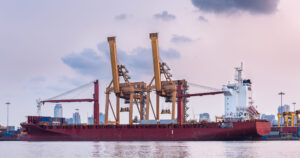At the heart of maritime logistics lies a silent yet powerful document. One that can influence financial results, define contractual responsibilities, and even prevent complex disputes. It is the Statement of Facts (SoF).
A lesson from 1748 that still resonates today
In his classic 1748 essay Advice to a Young Tradesman, Benjamin Franklin coined the phrase “time is money.” Centuries later, this maxim finds perfect resonance in the world of shipping, where port operations are timed almost like a Formula 1 race and every minute off schedule can be costly.

What exactly is the Statement of Facts?
The SoF is, in essence, a logbook of a ship’s port activities. Compiled by the ship agent and/or the master, it records every relevant event from the vessel’s arrival at the port to its departure.
Key entries typically include:
- Time of arrival and anchorage
- Delivery of the NOR (Notice of Readiness)
- Berthing and unberthing
- Start and end of loading/discharging operations
- Interruptions due to weather or operational delays
- Waiting times for inspections, tugs, or documentation
This document forms the foundation for calculating laytime, the agreed period for cargo operations and determines whether demurrage (excess time) or dispatch (time saved) is applicable.
Why accuracy in the SoF is critical?
Contrary to what some might think, the SoF is not a mere administrative routine. It is often used as legal evidence in arbitration and charter party disputes. Minor inaccuracies such as misreporting a timestamp or omitting a rain delay can result in thousands of dollars in losses or the inability to defend a rightful claim.
More importantly, a poorly prepared SoF can damage future negotiations with charterers and shipowners, who increasingly value partners that deliver reliability, compliance, and transparency.
Real-world examples: when the SoF takes center stage
- Unrecorded Rain Delay: During a dry bulk discharge operation, a 4-hour stoppage due to rain was not properly recorded in the Statement of Facts (SoF). As a result, the owner claimed demurrage from the charterers. The absence of this entry in the SoF caused the charterers to lose contractual protection against weather-related delays.
- Delays Due to Strikes, Lockouts, or Riots: The failure to accurately document delays caused by strikes, lockouts, or riots in the SoF led to the owner claiming demurrage. Without proper records of these force majeure events, the charterers were unable to invoke contractual defenses, resulting in financial exposure.
- NOR Wrongly Accepted: A Notice of Readiness (NOR) was tendered and accepted outside the agreed contractual laycan period. This procedural error rendered the laytime calculation invalid, ultimately leading to unforeseen costs for the charterers.

The role of the shipping agency
At Zyon Shipping, we treat the SoF with the seriousness of a legal contract. Our team is trained to maintain clear, consistent, and auditable records, and we leverage digital tools to ensure nothing slips through the cracks.
Beyond documentation, we take ownership in defending the operational and commercial interests of our clients, acting proactively when anomalies arise whether issuing a note of protest or flagging a potential contractual conflict.
Final thoughts
The Statement of Facts is more than just a report, it is the factual history of your port operation. In a sector where time has real, measurable value, underestimating its importance is a risk that no performance-driven company should take.
At Zyon Shipping, we understand what’s at stake, and that’s why we treat the SoF as a tool for control, protection, and performance. As Franklin famously put it, “Time is money”, and in today’s world, well-managed time can do even more: it creates value.



